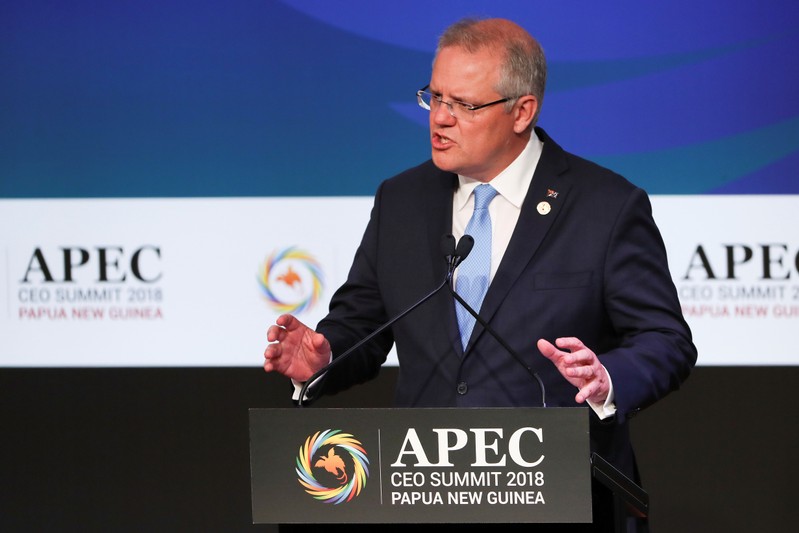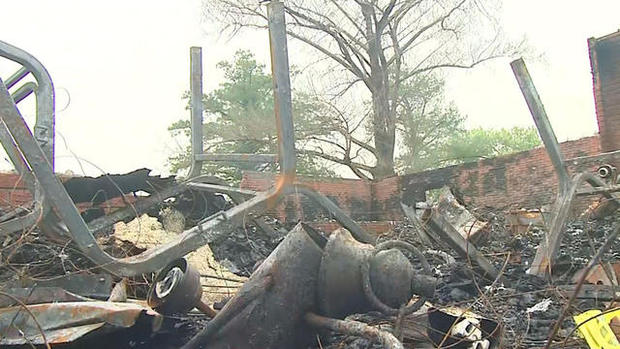
FILE PHOTO – Prime Minister of Australia Scott Morrison reacts during the APEC CEO Summit 2018 at the Port Moresby, Papua New Guinea, 17 November 2018. Fazry Ismail/Pool via REUTERS
April 11, 2019
By Tom Westbrook and Sonali Paul
SYDNEY/MELBOURNE (Reuters) – Australians will go to the polls in a general election on May 18 after Prime Minister Scott Morrison fired the starting gun on Thursday on a campaign set to be fought over taxation, climate change and inequality.
Morrison and his main opponent, Labor party leader Bill Shorten, both used the Australian phrase “a fair go” to frame their campaigns around a national sense of equality and opportunity, albeit from very different angles.
Opinion polls have had center-left Labor well ahead for years and show that the coalition of Morrison’s Liberals and the rural-focused Nationals party is headed for a resounding defeat..
“It’s an enormous mountain to climb,” said political science professor Paul Williams from Griffith University in Brisbane.
“If (Morrison) were to pull this off it would be one of the greatest comebacks in political history,” he said.
Morrison led his pitch to voters with his conservative coalition’s economic credentials, framing the election as a referendum on its record of managing Australia’s finances.
“So the choice to be made by Australians on the 18th of May is like it always is at every election, and that is: who do you trust to deliver that strong economy which your essential services rely on?” he told reporters in Canberra.
However, Morrison’s coalition governs in minority and must win seats to hold power. It has also had three prime ministers in six years, with leadership instability a major reason for its poor showing in opinion polls.
Labor promised higher wages and an end to tax breaks that favor the wealthy under its slogan “A Fair Go for Australia”.
“We can manage the economy in the interests of working- and middle-class people,” Shorten told a news conference he called in a suburban backyard in the southern city of Melbourne. “When everyday Australians are getting a fair go, this economy hums.”
Asked for his response to Labor’s campaign, Morrison replied: “I believe in a fair go for those who have a go.”
The campaign will run for five weeks but the major parties are set to suspend their campaigns on the Easter public holidays and Anzac Day on April 25, a war remembrance day in Australia and New Zealand.
SLOWING ECONOMY
Morrison’s pitch comes just as the economy shows signs of beginning to slow. Consumer spending has weakened as home prices fall after a prolonged property boom and high debt levels weigh on sentiment.
The International Monetary Fund said overnight stimulus may be needed in Australia and financial markets are fully pricing in the probability of at least one interest rate cut later this year.
Markets reacted modestly, with the announcement no surprise for a poll that must be held by the end of May.
Morrison’s pre-election budget last week promised tax cuts for low- and middle-income earners, while projecting the first budget surplus in more than a decade.
Labor promised to match the tax cuts for middle-income earners and pledged bigger concessions for lower-paid workers.
It will fund the income tax cuts by curbing capital gains tax discounts, seeking greater taxes from multinationals and banks, and scrapping a favorable tax scheme for property investors called negative gearing, the party said.
“Labor’s higher tax and regulation agenda may be a negative for Australian assets, but this could be partly offset in the short term by more targeted fiscal stimulus,” said AMP Capital Chief Economist Shane Oliver.
“The May election presents a starker choice than has been the case since the 1970s and so suggests greater uncertainty for investors than usual,” he said.
It will be Morrison’s first election as leader since he replaced former prime minister Malcolm Turnbull in August after a party-room revolt.
That did little to improve the coalition’s weak poll numbers and the government remains divided over energy and social policies.
“I think the zeitgeist is changing a little bit away from fiscal rigor to fairness,” said Mark Triffitt, a public policy lecturer at the University of Melbourne.
“There are a lot of people that take that fiscal rigor and budget surplus as very, very fundamental, but I think that’s shifting back into: ‘What’s the point of having a budget surplus if I feel like I’m not getting ahead?’,” he said.
(Reporting by Tom Westbrook in SYDNEY and Sonali Paul in MELBOURNE; Editing by Darren Schuettler, Grant McCool and Paul Tait)

